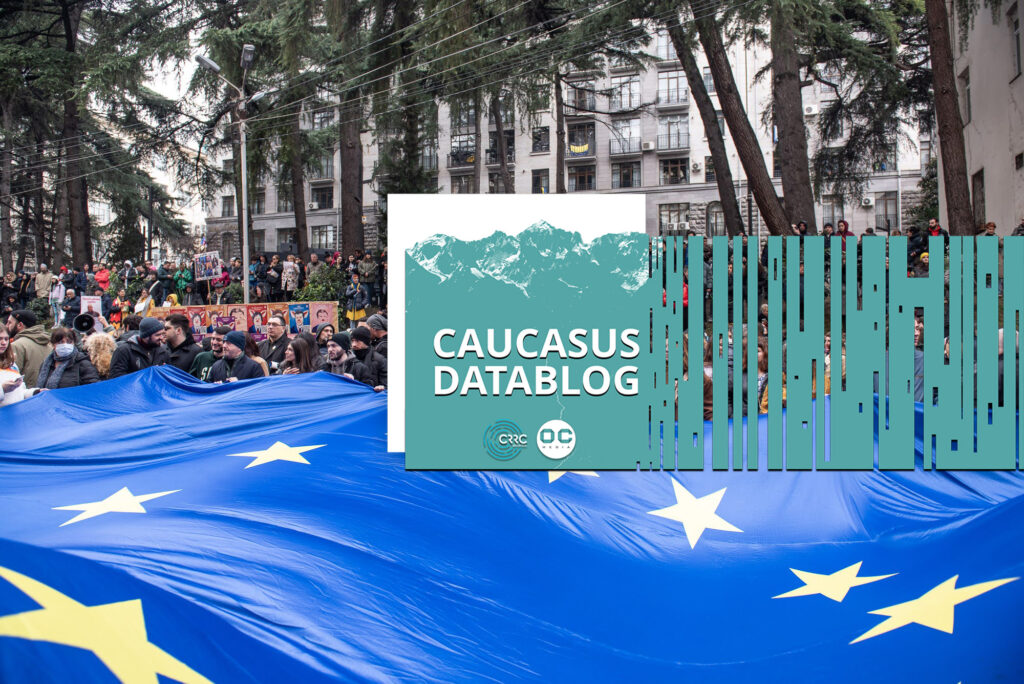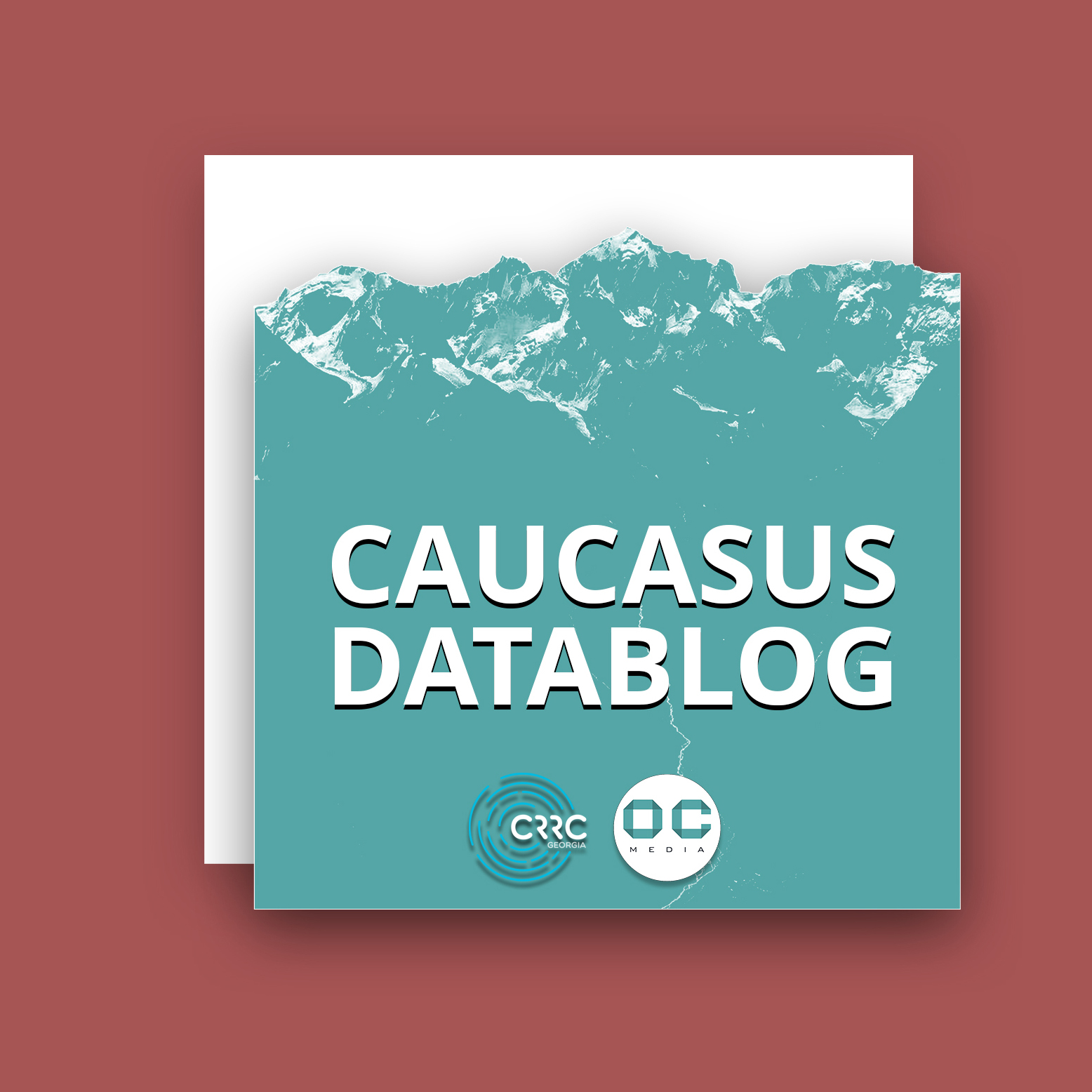CRRC Georgia data suggests that while the majority of Georgians want to join the EU, they are largely split along partisan lines on whether their government is doing enough to secure the country’s candidate status.
Georgia has long stated that it aims to join both the European Union and NATO. However, the government’s recent actions, including campaigning for the foreign agent draft law, increasingly critical rhetoric on Ukraine, and the propagation of conspiracy theories suggesting that the West was attempting to draw Georgia into the war in Ukraine have called its dedication to Euro-Atlantic integration into question.
Georgia was denied EU candidacy last year, and obligated to fulfil 12 criteria laid out by the EU for its bid to be re-examined by Brussels.
Data from CRRC Georgia and the National Democratic Institute’s (NDI) December 2022 poll suggests that the public’s support for membership remains as strong as ever. However, a majority think the government is not doing enough to support the country’s bid, and the public is split over how the country’s foreign policy has developed over the last five years.
The CRRC and NDI survey has consistently shown that a large majority of the Georgian public supports the country’s membership in the European Union. Since April 2014, between 61% and 83% of the public has reported support for the government’s stated goal of joining the European Union, with all bar one survey finding that over 70% of the public is in favour of the goal. In the most recent wave of the survey, 81% reported approving Georgia’s membership bid, slightly up from 75% in July–August of 2022.
Despite widespread support for Georgia’s EU bid, a slight majority of the public (56%) reported that the government is not doing enough (38%) or doing nothing at all in support of EU membership (18%).
In contrast, only 30% reported that the government was doing everything it could to ensure Georgia’s membership. A further 13% were uncertain and 1% refused to answer the question.
In the July and August edition of the CRRC–NDI survey a similar question was asked, with 27% of the public reporting that the government did everything it could to gain candidate status, 49% reporting it did not do enough, and the remaining share of the public either reporting they did not agree with either sentiment (8%) or that they were uncertain or unwilling to answer the question (16%).
The public was also asked whether Georgia had grown closer to the EU, distanced itself from it, or if the relationship has remained the same as it was over the last five years.
The public was split on this, with roughly equal shares reporting that Georgia had grown closer to the EU (30%) and that Georgia’s relationship with the EU remained the same as it was five years ago (29%). A quarter of the public (24%) reported that Georgia had distanced itself from the EU. One in six (15%) report they are uncertain, while 1% refused to answer the question.
While the data show no partisan divide in terms of support for Georgia’s membership in the European Union, the other two questions show clear divisions between partisans over both how Georgia’s relationship has developed with the European Union and the government’s efforts at gaining candidate status.
While 59% of Georgian Dream supporters felt that the government was doing everything it could for Georgia’s bid, only 7% of the United National Movement’s (UNM) supporters and 19% of those who support no party felt the same. Similarly, 51% of Georgian Dream supporters believed that Georgia has got closer to the EU over the last five years, while only 14% of the UNM’s supporters and a quarter (24%) who reported they support no party felt the same.

While the public remains supportive of Georgia’s membership bid in the European Union, they were split over both the government’s efforts at moving Georgia closer to the EU and how they perceived the relationship’s dynamics over the past half-decade, prior to attempts to adopt the foreign agents law.
As with many perceptions of the affairs of the day, views on these issues are split along partisan lines. However, it is clear that Georgia’s bid for membership in the European Union is increasingly on the rocks.
This article was written by Dustin Gilbreath, a non-resident Senior Fellow at CRRC Georgia. The views presented in the article are the author’s alone, and do not necessarily reflect the views of CRRC Georgia, NDI, or any related entity.
The data used in this article is available here.




 14 March 2023
14 March 2023





